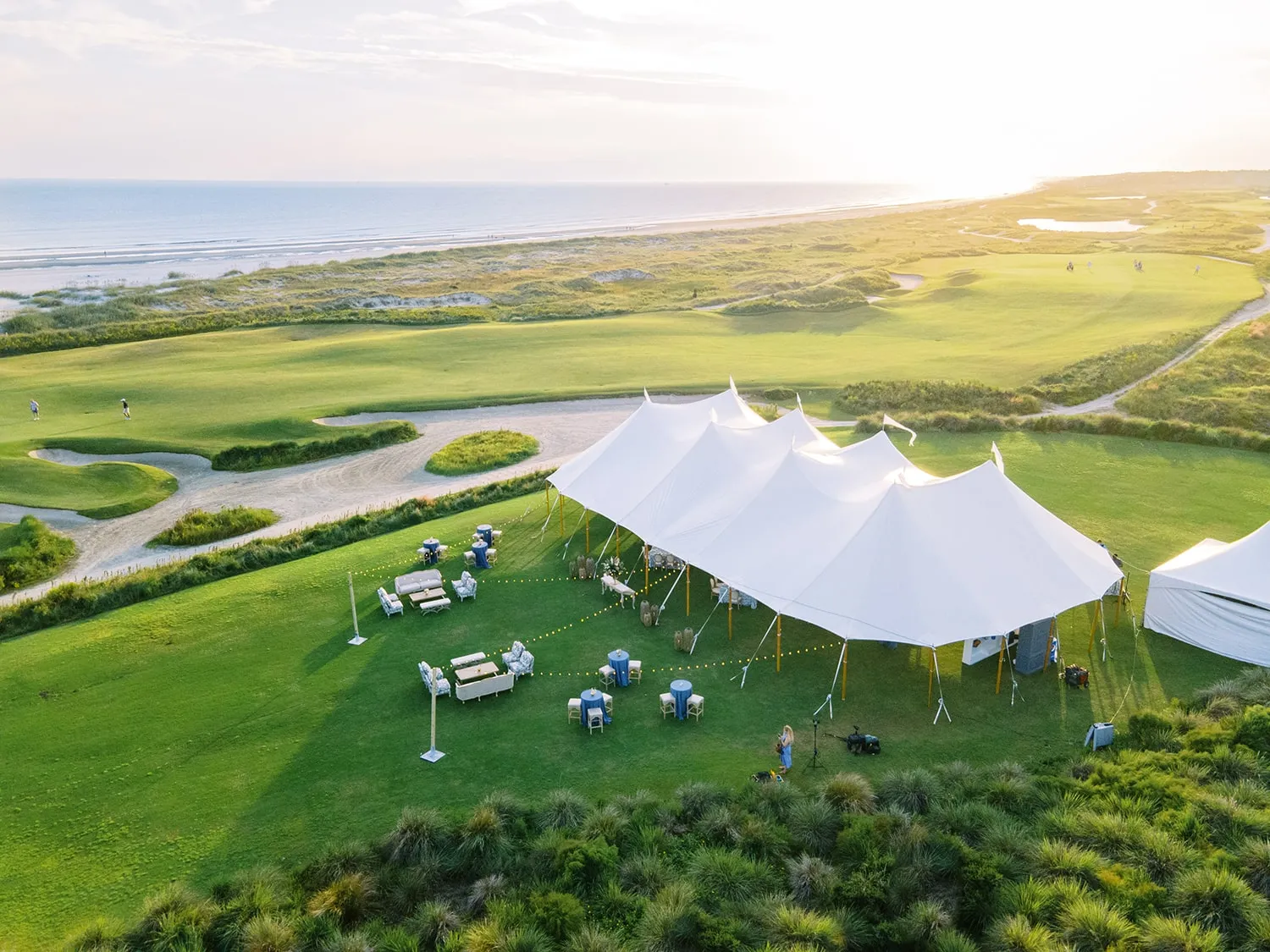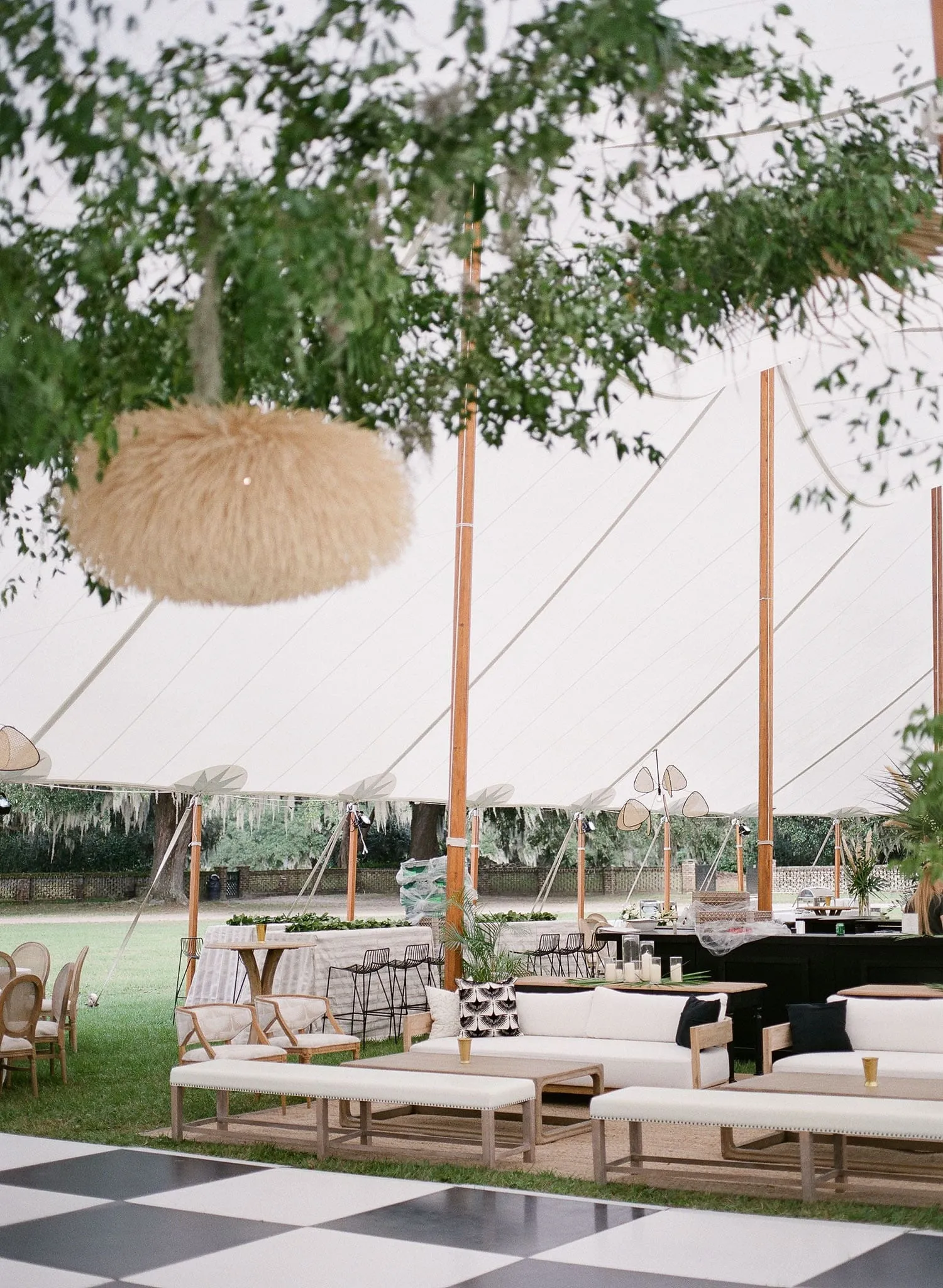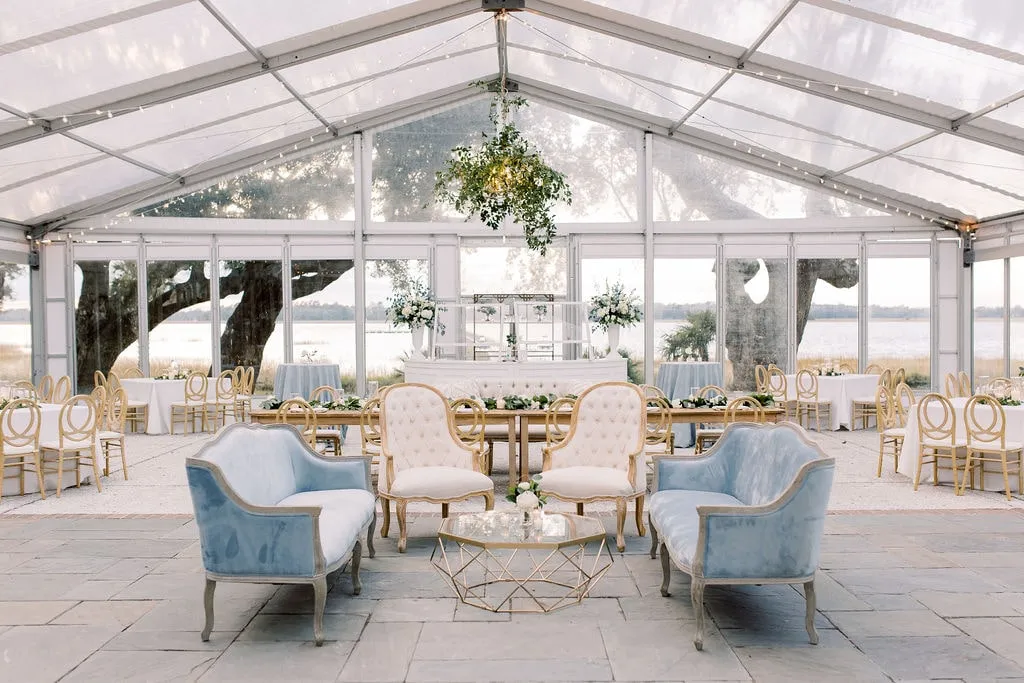Selecting the ideal tent for your event can be challenging. This guide simplifies the process, focusing on tent types, key factors, and specific considerations for weddings and corporate events. We’ll explore how to choose the right size, style, and tarpaulin material for your needs. You’ll learn about essential accessories and practical steps to acquire the perfect tent, ensuring your event’s success while considering price, length, and inventory options.
Key Takeaways
- Different tent types suit various events, from frame tents for flexibility to specialty tents for unique celebrations.
- Proper tent selection considers factors like guest count, weather, venue limitations, budget, and guest comfort.
- Wedding tents require careful layout design, lighting, decor, and vendor collaboration for a seamless experience.
- Corporate event tents can be customized for branding, meetings, networking, and technology integration.
- Tent accessories like flooring, climate control, and safety features enhance comfort and functionality for all events.
Understanding the Different Types of Event Tents
Event tents come in various types, each suited for different occasions. The options are diverse, from flexible frame tents to traditional pole tents with classic charm. Clear-span tents provide large, open spaces, while specialty tents cater to unique celebrations. Understanding these styles helps customers choose the right tent for their event, whether it’s a rainy day or a sunny outdoor gathering.
Exploring Frame Tents and Their Benefits
Frame tents offer versatility and stability for various events. Their sturdy design allows for custom floor layouts, efficient lighting setups, and easy heat control. These tents don’t require center poles, providing an open space for flexible seating arrangements. Event planners can easily add side panels or awnings to frame tents, adapting them to different weather conditions:
The Charm of Traditional Pole Tents
Traditional pole tents exude timeless elegance, making them popular for various events. Their signature peaked roof, supported by central poles, creates a dramatic and visually appealing silhouette. This iconic design adds aesthetic value and enhances the overall event atmosphere, making special occasions feel grand and inviting. Their design supports creative lighting setups, such as string lights, chandeliers, or uplighting, transforming the tent into a captivating event space. Pole tents are well-suited for outdoor weddings, festivals, and social gatherings. Their spacious interior, defined by a high ceiling and open layout, allows for versatile event configurations.
When to Choose Clear Span Tents
Clear span tents are ideal for large-scale events requiring unobstructed interior spaces. These structures, built with aluminum frames and tension fabric, offer superior wind resistance and stability. Clear span tents are particularly suited for corporate events, trade shows, and upscale weddings where a sleek, modern aesthetic is desired. Their versatility allows for custom layouts and the integration of advanced audiovisual equipment, making them perfect for events that demand a professional atmosphere:
- Spacious interiors without support poles
- Enhanced stability in various weather conditions
- Customizable sizes to fit event requirements
- Suitable for long-term installations
Specialty Tents for Unique Celebrations
Specialty tents bring creativity and uniqueness to themed events and special celebrations. Their distinctive designs set the stage for memorable experiences, making them ideal for occasions that call for something extraordinary. These tents come in various styles, each lending its own charm and character to the event setting. Event planners often select specialty tents to craft immersive environments that align with specific themes or cultural inspirations.
Comparing Tent Styles to Suit Your Occasion
Organisations must consider the occasion’s specific requirements when selecting a tent for an event. Frame tents offer versatility for corporate gatherings, while pole tents provide a classic look for traditional weddings. Clear-span structures suit large-scale events needing unobstructed spaces, and specialty tents add a unique flair to themed celebrations. The choice depends on factors such as guest count, location, and desired ambiance, ensuring the perfect setting for any occasion.
Key Factors in Selecting the Perfect Tent

Selecting the perfect tent involves considering several key factors. These include determining the right size for your guest list, accounting for weather and seasonal elements, assessing venue limitations, budgeting for rental or purchase, and ensuring guest comfort and accessibility. Each aspect plays a crucial role in creating a successful event, whether it’s a wedding or corporate gathering.
Determining the Appropriate Size for Your Guest List
Determining the appropriate tent size for a guest list is crucial for event success. Event planners must consider the number of attendees, seating arrangements, and additional space requirements for activities or catering. A general rule of thumb is to allocate 10-15 square feet per guest for a seated dinner and 6-8 square feet for a standing reception. Accurate guest count estimation and accounting for extra space are needed to ensure comfortable accommodation and a smooth event flow.
Considering Weather and Seasonal Elements
Weather and seasonal elements play a crucial role in tent selection for events. Event planners must consider factors such as temperature, precipitation, and wind when choosing a tent. In colder months, tents with proper insulation and heating systems ensure guest comfort. For summer events, tents with adequate ventilation or air conditioning prevent overheating. Waterproof materials and proper drainage systems are essential for rainy seasons, while wind-resistant structures are necessary for outdoor locations prone to gusty conditions.
Assessing Venue Limitations and Site Conditions
ssessing venue limitations and site conditions is crucial when selecting an event tent. Event planners must consider factors such as available space, ground surface, and nearby obstacles. The chosen site should accommodate the tent size, allow for proper anchoring, and provide access to necessary utilities. Uneven terrain, trees, or buildings can impact tent placement and require special setups or alternative tent styles.
Ensuring Accessibility and Guest Comfort
Ensuring accessibility and guest comfort is essential when selecting an event tent. Event planners must consider factors such as proper flooring, adequate lighting, and temperature control systems to create a welcoming environment. Wide entrances and clear pathways accommodate guests with mobility needs, while strategically placed exits ensure safety. Comfortable seating arrangements, well-positioned restroom facilities, and designated refreshment areas contribute to a positive guest experience.
Creating Unforgettable Weddings With the Right Tent
Selecting the perfect tent for a wedding is the first step in creating a memorable event. This section explores how to design an ideal layout, enhance the atmosphere with lighting and decor, incorporate natural surroundings, accommodate various activities, and collaborate with wedding planners and vendors. These elements work together to ensure a seamless and beautiful wedding experience.
Designing the Ideal Layout for Ceremony and Reception
Designing the ideal wedding ceremony and reception layout requires careful planning and consideration of the tent’s structure. Event planners must optimize the available space, ensuring a smooth transition between the ceremony and reception areas. The layout should accommodate essential elements such as the altar or stage, seating for guests, dance floor, catering stations, and bar areas. Proper placement of these elements within the tent creates a natural flow, enhancing the overall guest experience and allowing for easy movement throughout the event.
Enhancing Atmosphere With Lighting and Decor
Lighting and decor plays a crucial role in enhancing the atmosphere of a wedding tent. Event planners use various lighting techniques, such as string lights, chandeliers, and uplighting, to create a romantic ambiance. They also incorporate decorative elements like drapes, floral arrangements, and table centerpieces to reflect the couple’s style and theme. These elements transform the tent into a magical space, setting the perfect mood for the celebration:
- String lights for a soft, warm glow
- Chandeliers for elegance and focal points
- Uplighting to highlight tent features
- Drapes to soften tent walls
- Floral arrangements for natural beauty
- Themed centerpieces for table decor
Incorporating Natural Surroundings Into Tent Design
Incorporating natural surroundings into the tent design enhances the wedding atmosphere. Event planners use clear tent panels to showcase scenic views and integrate local flora into the decor. They position the tent to take advantage of natural light and sunset vistas, creating a seamless blend between the indoor and outdoor spaces. This approach not only reduces decorating costs but also provides a unique, location-specific ambiance for the celebration:
Accommodating Dining, Dancing, and Entertainment
A wedding tent requires thoughtful space allocation to accommodate dining, dancing, and entertainment. Event planners typically designate separate areas for each activity, ensuring smooth transitions throughout the celebration. They consider factors such as guest count, table sizes, and dance floor dimensions to create an efficient layout. Adequate space for catering stations, bars, and entertainment setups is essential for a well-organized event. By carefully planning these elements, couples can create a versatile environment that caters to all aspects of their wedding reception.
Collaboration With Wedding Planners and Vendors
Collaboration with wedding planners and vendors is essential for creating a seamless tent-based wedding experience. Event rental companies work closely with planners to understand the couple’s vision and ensure the chosen tent meets their needs. Vendors such as caterers, florists, and entertainment providers coordinate with tent suppliers to optimize space usage and create a cohesive atmosphere. This teamwork ensures that all aspects of the wedding, from setup to breakdown, run smoothly within the tent environment.
Optimizing Corporate Events With Tailored Tenting
Tailored tenting solutions optimize corporate events by offering customizable spaces for branding, meetings, and networking. Event planners can configure tents to accommodate presentations and exhibition areas and integrate technology seamlessly. These versatile structures also provide ideal settings for hospitality and catering, ensuring a professional and efficient environment for business gatherings.
Customizing Tents for Branding and Marketing
Customizing tents for branding and marketing transforms corporate events into powerful promotional platforms. Event planners work with tent suppliers to incorporate company logos, colors, and messaging into the design. They use custom-printed panels, branded entranceways, and strategically placed banners to create immersive brand experiences. These tailored environments reinforce corporate identity and leave lasting impressions on attendees, enhancing the overall impact of the event:
- Custom-printed tent panels with company logos
- Branded entrance archways for impactful first impressions
- Strategic placement of banners and signage
- Color-coordinated tent interiors matching brand palettes
- Multimedia displays integrated into tent structures
Configuring Spaces for Meetings and Presentations
Configuring spaces for meetings and presentations within corporate event tents requires strategic planning. Event organizers partition large tent areas into smaller sections using modular walls, creating dedicated spaces for breakout sessions, keynote speeches, and panel discussions. They incorporate proper audio-visual equipment, ensuring clear sightlines and optimal acoustics for effective communication. Flexible seating arrangements allow quick transitions between different event formats, maximizing the tent’s functionality and enhancing attendee engagement.
Facilitating Networking and Exhibition Areas
Facilitating networking and exhibition areas within corporate event tents requires thoughtful space allocation. Event planners design open floor plans with strategically placed booth spaces, lounge areas, and interactive zones to encourage attendee interaction. They incorporate flexible furnishings and modular structures that can be easily reconfigured to accommodate various networking activities and exhibition needs. Proper lighting, signage, and technology integration enhance the overall experience, creating an environment conducive to business connections and product showcases:
- Open floor plans for easy movement
- Strategically placed booth spaces
- Comfortable lounge areas for casual networking
- Interactive zones with technology integration
- Flexible furnishings for adaptable spaces
- Clear signage for easy navigation
Integrating Technology and Audio-Visual Needs
Integrating technology and audio-visual needs is crucial for successful corporate events in tented environments. Event organizers work with AV specialists to install high-quality sound systems, projection equipment, and networking infrastructure within the tent structure. They strategically position screens and speakers to ensure all attendees’ optimal visibility and audio clarity. Power management systems are carefully planned to support various devices and equipment, while climate control solutions maintain a comfortable environment for technology operation.
Providing Hospitality and Catering Solutions
Providing hospitality and catering solutions within corporate event tents requires careful planning and coordination. Event organizers work with catering companies to design efficient layouts for food stations, bars, and dining areas that complement the tent’s structure. They consider factors such as guest flow, service accessibility, and temperature control to ensure a seamless dining experience. Mobile kitchens or catering tents adjacent to the main event space allow on-site food preparation, maintaining quality and freshness throughout the event.
Enhancing Your Event With Tent Accessories and Options

Tent accessories and options play a crucial role in enhancing event experiences. This section explores key elements such as flooring, staging, climate control, furniture, decor, lighting, sound systems, and safety features. By carefully selecting these components, event planners can create comfortable, visually appealing, and safe environments for guests, regardless of the occasion.
Selecting Flooring and Staging Components
Selecting appropriate flooring and staging components is crucial for creating a stable and attractive foundation for tented events. Event planners choose from various options, including interlocking plastic tiles, wooden platforms, and carpeting, depending on the venue’s terrain and event style. They also consider the need for raised stages or dance floors, ensuring proper support and safety for performers and guests. The right flooring and staging choices enhance the overall event aesthetics and functionality:
- Interlocking plastic tiles for versatile, quick installation
- Wooden platforms for a solid, level surface
- Carpeting for added comfort and style
- Raised stages for improved visibility
- Reinforced dance floors for active areas
- Non-slip surfaces for safety in high-traffic zones
Climate Control Solutions for Guest Comfort
Climate control solutions are essential for ensuring guest comfort in tented events. Event planners use various systems to regulate temperature and humidity, including portable air conditioning units, heaters, and fans. These devices are strategically placed to maintain a consistent and comfortable environment throughout the tent. For larger events, industrial-grade HVAC systems may be installed to handle more demanding climate control needs:
Choosing Furniture and Decor to Match Your Theme
Choosing furniture and decor that match the event theme creates a cohesive and visually appealing atmosphere within the tent. Event planners select items such as tables, chairs, linens, and centerpieces that complement the overall design concept. They consider factors like color schemes, textures, and styles to ensure all elements harmonize harmoniously. By carefully curating furniture and decorative pieces, organizers transform the tent’s interior into a tailored space that enhances the guest experience and reinforces the event’s theme.
Implementing Lighting and Sound Systems
Implementing lighting and sound systems is crucial for creating the right ambiance and ensuring clear communication in tented events. Event planners work with audiovisual specialists to design custom lighting setups that enhance the tent’s atmosphere, using a combination of ambient, accent, and task lighting. They install professional-grade sound systems with strategically placed speakers to provide even audio coverage throughout the space. These technical elements are carefully integrated into the tent structure, considering power requirements and equipment placement to maintain the event’s aesthetic appeal while delivering optimal performance.
Incorporating Safety Features and Emergency Exits
Incorporating safety features and emergency exits is crucial when setting up event tents. Organizers must ensure proper placement of fire extinguishers, clearly marked exit signs, and well-lit pathways for quick evacuation. They work with local authorities to comply with safety regulations, including proper tent anchoring and electrical system inspections. These measures create a secure environment for guests, allowing them to enjoy the event with peace of mind:
- Strategically placed fire extinguishers
- Clearly marked and illuminated exit signs
- Wide, unobstructed pathways for easy evacuation
- Proper tent anchoring to prevent collapse
- Regular electrical system inspections
- Compliance with local safety regulations
Conclusion
Selecting the ideal tent is crucial for creating successful events, from intimate weddings to large-scale corporate gatherings. The right tent provides shelter, sets the atmosphere, enhances branding opportunities, and ensures guest comfort in various weather conditions. Event planners can create tailored environments that meet specific event needs and exceed client expectations by carefully considering factors such as tent type, size, accessories, and venue limitations. Ultimately, investing time and effort in choosing the perfect tent pays dividends in the form of memorable, well-executed events that leave lasting impressions on attendees.


